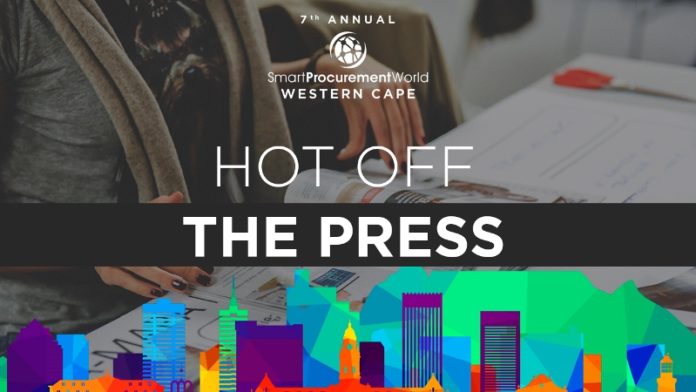On 18 May 2020, South Africa’s Chief Inspector of Mines, David Msiza, with the Department of Mineral Resources and Energy issued guidelines for employers to prepare and implement codes of practice to mitigate and manage the effect of the COVID-19 outbreak on the health and safety of employees and persons in the South African Mining Industry.
The Guideline was issued following an order handed down by the Labour Court on 1 May 2020, in accordance with Section 9 of the Mine Health and Safety Act of 1996. It directs the Chief Inspector of Mines, in consultation with the Mine Health and Safety Council, to develop the Guideline for employers in the mining. The Guideline applies to all mines or parts thereof, employees and contract employees in the South African mining industry that might be exposed to COVID-19 in the performance of their duties.
Legal status of Guideline and COP
The employer is obliged in terms of section 9 (2) of the Mine Health and Safety Act to prepare and implement a COP addressing the COVID-19 viral pandemic. The COP must comply with the Guideline and any instructions issued by the Chief Inspector of Mines in terms of section 9(3) of the MHSA, including relevant regulations and guidelines issued under the Disaster Management Act.
The COP may be used in an investigation to ascertain compliance and to establish whether the COP is effective and fit for purpose. Failure by the employer to prepare or implement a COP in compliance with the Guideline will constitute a criminal offence and a breach of the MHSA.
Preparation of COP
The employer is required to consult with the mine’s health and safety committee and any other affected parties on the preparation, implementation or revision of any COP in terms of Section 9(4) of the MHSA.
Following this consultation process, the Guidelines recommend that the employer appoint a steering committee comprised of competent persons to effectively draft the COP.
Prescribed contents of COP
The Guideline sets out the structure that the COP must follow and the minimum required contents. The following key elements must be addressed in the COP:
- Risk assessment and review
- Start-up and on-going procedure for mines
- COVID-19 management programme
- Monitoring and reporting
- Compensation for occupationally acquired COVID-19
The Guideline provides detailed directions on the various issues that each of these elements must address. We highlight some of these directions below.
Risk Assessment
The Guideline requires employers to conduct a risk-based assessment covering all workings at mines. At a minimum, the risk assessment must consider the following:
- All sources of SARS-CoV-2 infection transmission and the health effects associated with exposure to SARS-CoV-2
- The nature of the key workplace operations and activities that pose potential risk of SARS-CoV-2 transmission, occupations and the number of employees who are likely to be exposed to and spread SARS-CoV-2
- The mine’s essential occupations or critical skills that might be impacted by SARS CoV-2 transmission
- The risk of employees vulnerable to SARS-CoV-2 while at work
- The control measures in place
- The de-densification of employees on transport modes and other spaces
- The additional control measures required to be instituted in order to reduce exposure and the spread of SARS-CoV-2
- The frequency of any ongoing monitoring to assess the effectiveness of the implemented controls
The mine’s risk assessment methodology must take cognisance of the WHO classification of the risk of SARS-CoV-2 infection into four risk groups set out in the Guideline. These risk groups are classified according to the nature and extent of contact with other people and the general public when working.
Start Up Procedure
Employers must establish a precautionary start-up procedure aligned with the Instruction issued by the Chief Inspector of Mines on the 20 April 2020.
The start-up procedure must include the routine cleaning or disinfection or industrial sanitising of surfaces that employees come into contact with and as determined by the mine’s risk assessment, screening and testing procedures, withdrawal procedures to be used by the mine in the event of a localised COVID-19 outbreak and measures to collaborate with the Department of Health for the prevention and management of COVID-19 for migrant workers at ports of entry.
Mitigation and Management Programme
Employers must develop a policy or integrate COVID-19 management of suspected and positive cases into the mine’s existing policies, COP and standard operating procedures for health and safety.
Employers must ensure that employees returning from areas which are regarded as epicentres of COVID-19 are quarantined for 14 days before they return to work.
For employees presenting signs or symptoms of COVID-19, the mine’s COP and procedure must include: a dedicated 24-hour hotline to reach the mine’s healthcare workers or contracted healthcare services; a procedure to report when an employee is sick or experiencing symptoms of COVID-19; how, where and the duration of isolation will take place for employees suspected of being infected with COVID-19; and the site where employees with suspected COVID-19 infection will be screened, diagnosed and treated.
In developing the COP, an employer must consider the training to be provided to employees. The training must include information regarding proper hygiene practices and the use of workplace controls, the Prevention of COVID-19 stigma, the process employees will use to disclose any pre-existing conditions prior to returning to work and the COVID-19 National Hotlines.
Employers must, as far as possible, with employees’ consent and respecting medical confidentiality, be informed through the designated healthcare worker if any employees have pre-existing conditions that make them more susceptible to severe COVID-19. Such employees must only be permitted to work after receiving a certificate of fitness to work from an occupational medical practitioner. If an employee is not permitted to work due to a confirmed pre-existing condition, the employer must arrange for transportation of such employee back to their homes.
Obligations prior to and upon arrival of employees at the mine’s premises
The Guidelines set out detailed information regarding the preparations an employer must undertake before and when employees return to the mine’s premises. These preparations include developing a procedure for the management of the return to work of employees after the lockdown and encompassing the history of COVID-19 in employees’ areas of residence during the lockdown through a questionnaire.
The employer must utilise a risk-based method and a staggered approach to prioritise the return to work of employees. Employers must implement a return to work medical which must include the completion of a questionnaire and the taking of vital signs such as temperature, blood pressure, and glucose assessment for known diabetics.
Employers must establish a procedure for the daily screening of all persons entering and exiting the mine and ensuring that they comply with protective measures while on site. Anyone who fails screening must be denied access and advised to seek medical assistance. The Employer must ensure the availability of medical resources, personnel, equipment, PPE, cleaning and disinfection services, the flu vaccination and prophylaxis for vulnerable employees. Employers must apply de-densification and physical distancing of 1-2 metres and provide the relevant PPE for mass transport and at areas of the mine where close contact may occur.
To classify the risk for the purpose of providing appropriate PPE, each mine must consider the risk classification groups for each job as set out in the Guideline as well as the mine’s specific circumstances within the context of what is reasonably practicable.
Monitoring and Reporting
An employer must appoint a COVID-19 Compliance Officer to provide oversight on the implementation of the Guideline. Each mine must submit a monthly report to the Principal Inspector of Mines.
Access to the Code of Practice and Related Documents
The employer must ensure that the COP and related documents are kept readily available at the mine for examination by any affected person and a copy is provided to a registered trade union with members at the mine or health and safety representatives.
The Guideline sets out comprehensive (and often complex) duties to be addressed by employers in their mandatory COP’s. The Guideline will become effective on 25 May 2020. Employers are therefore advised to immediately commence with the necessary preparations.
The Minerals Council of South Africa has commented: “The guidelines are largely compatible with the Minerals Council’s Standard Operating Procedure and the version of the SOP used as the interim basis of regulation since the judgment. The Minerals Council believes the industry will be comfortable about observance of the guidelines.”























